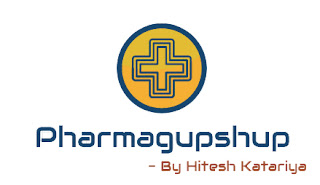
A ghostwriter is a professional writer who is paid to write books, articles, stories, reports, or other texts that are officially credited to another person. Celebrities, executives, and political leaders often hire ghostwriters to draft or edit autobiographies, magazine articles, or other written material.
Most pharmaceutical companies pay both professional writers to produce papers and then pay other scientists or physicans to attach their names to these papers before they are published in a medical or scientific journals.
So, is such information produced by ghostwriters legit? Is it reliable?
Do ghost writers have the necessary skill and knowledge to deduce pharmaceutical data and draw fruitful, true conclusions ?
I doubt so.
Recently, pharmaceutical ghost writing has attracted scrutiny from the lay press and from lawmakers, as well. It is permitted at some institutions, including the University of Washington School of Medicine, while it is prohibited and considered a particularly pernicious form of plagiarism at others, such as Tufts University School of Medicine.
Some university and college students hire ghostwriters from essay mills to write entrance essays, term papers, and theses and dissertations. In the 2000s, many essay mills began offering online services. The most basic ‘essay mill’ service is the sale of a previously written essay. However, since submitting a previously written essay is risky, a ‘customized’ essay-writing service is available for a higher price, often reaching $50 per page.
Universities have developed several strategies to combat this type of academic fraud. Some professors require students to submit electronic versions of their term papers, so that the text of the essay can be compared against databases of essays that are known to have been written by essay mills. Other universities allow professors to give students oral examinations on papers which a professor believes to be ‘ghostwritten’; if the student is unfamiliar with the content of an essay that they have submitted, then the student can be charged with academic fraud. However, ghost writing services in the academic field have become a strong source of income for many with an acumen for writing especially in the ‘customised’ category. Irrespective of the ethical questions, the ghostwriter is not involved in anything illegal.
In the case of a ghostwritten doctoral dissertation or other award for academic merit, the client falsely presenting the work of another as his own may be defrauding both the institution awarding him the degree and anyone in the future who pays him on the basis of his having earned a PhD degree.
Now the question must be asked. Is ghost writing a good practice or bad?
Few people say it is a synonym for “plagiarism”. Few say it is a scientific misconduct. Whatever may be the opinion, it is surely a recipe for disaster. Research in Science and technology has to be fair and transparent. There are many incidents that can be quoted, pointing us towards ghost writing.
For example, according to a website ( http://news.aapc.com/index.php/2009/01/congress-cracks-down-on-pharmaceutical-ghostwriting/) , “Wyeth, the pharmaceutical company that makes hormone replacement drugs Prempro and Premarin, is accused of using ghostwriters to write medical journal articles favoring its hormone replacement therapy (HRT) Prempro. Wyeth hired the medical coding company, DesignWrite Inc., to write articles related to Wyeth products and breast cancer risks, according to Congressional letters released from Sen. Charles Grassley”.
Many such ghost writing stories are everywhere in the net. If such allegations are true, then the reliability of the person or company must be questioned. These individuals or companies would have falsified data to move the drug up in the ladder of clinical trails form Phase I to IV. In such case the efficacy of the drug candidate becomes dubious.
Potential catastrophes await, if such bad manipulated literature is left to circulate in the pharma sector.
Please post your comments and ideas on pharmaceutical ghost writing. What do you think of this whole phenomenon?



Your blog is really helps for my search and amazingly it was on my searching criteria.. Thanks a lot..
ReplyDeleteEssay Writing Help
http://www.donbradmancricket17s.com
ReplyDeletehttp://www.integralcalculators.com
http://www.integralcalculator.xyz